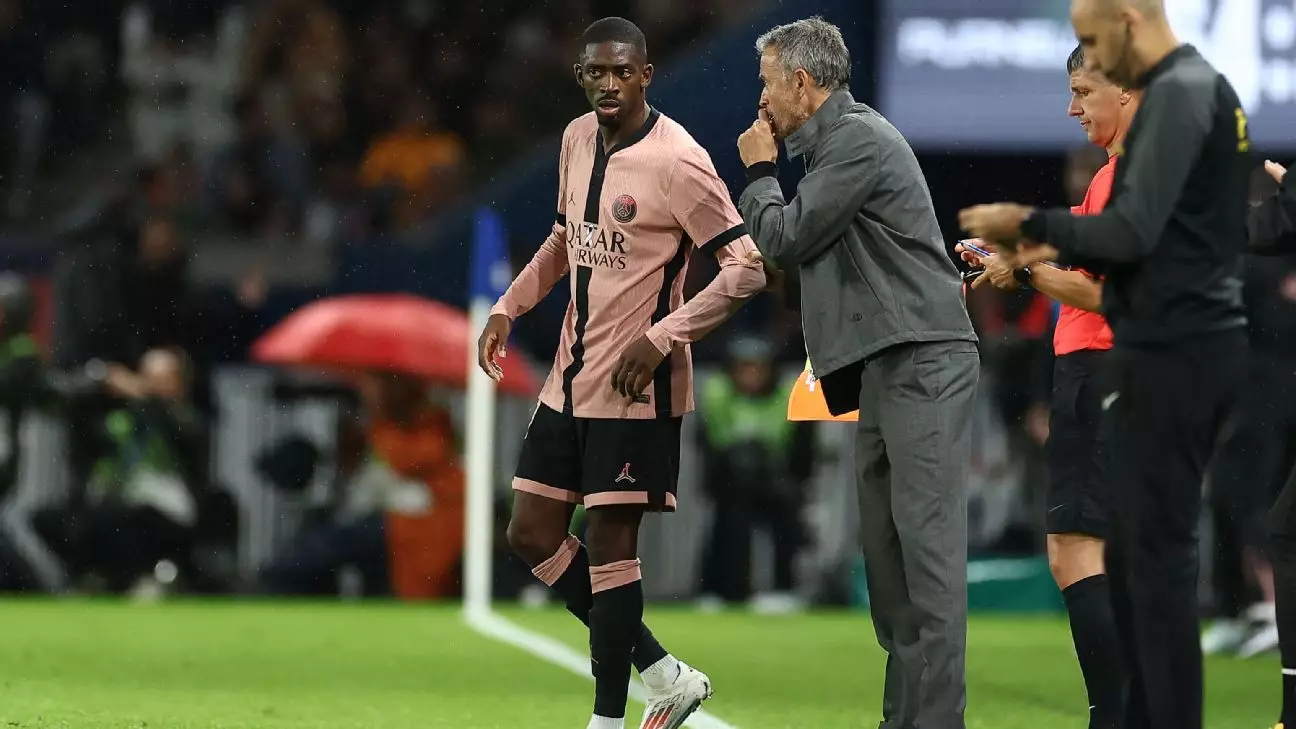Ousmane Dembélé, the French winger for Paris Saint-Germain (PSG), recently made headlines for his absence from the squad travelling to London to face Arsenal in the Champions League. The decision, attributed to a disagreement with head coach Luis Enrique, has raised eyebrows and spurred further discussion on player-coach relationships within professional sports. Sources close to the situation suggest that the altercation occurred following PSG’s impressive 3-1 victory over Rennes, adding an unexpected layer of tension to the club’s relatively successful start to the season.
The fallout from this disagreement was substantial, with Dembélé omitted from the squad altogether. This has underscored the influence a coach’s decisions can have on a player’s career and morale. The club has expressed unequivocal support for Enrique’s stance, highlighting a common theme in professional sports where leadership authority is pivotal. Enrique’s comments during a subsequent news conference indicate that his primary concern is the readiness of his players, particularly given the high stakes of upcoming matches.
Luis Enrique’s approach to team dynamics emphasizes discipline and commitment, principles he has previously enforced with other players, including elite talent like Kylian Mbappé. The coach openly stated the need for every team member to be “fully available,” implying that any perceived lack of commitment could result in disciplinary actions. This rigid approach may be necessary to maintain high performance levels within a team; however, it raises pertinent questions about player morale and the potential repercussions of such decisions on team chemistry.
Dembélé’s early-season form had been promising—having netted four goals and provided four assists in just six appearances. This inconsistency between his on-pitch performance and his reported off-pitch challenges could indicate a deeper issue concerning his integration into the team’s culture under Enrique’s leadership.
PSG is currently sitting atop Ligue 1, presenting a facade of stability and success. However, the conflict involving Dembélé serves as a reminder of the underlying complexities that professional teams face. Maintaining unity and alignment within a squad constitutes a continual challenge, especially when individuals with significant talent are involved. Enrique’s handling of the situation could either reinforce a culture of accountability or create discord among players questioning the coach’s methods.
As PSG prepares to face Arsenal in the second round of the revamped Champions League league phase, the focus must remain not only on individual performances but also on fostering a supportive environment where discipline does not come at the expense of player morale. Dembélé’s situation brings to light the balancing act that coaches must perform: holding players accountable while ensuring they feel valued and part of a cohesive unit. Only time will reveal whether this incident becomes a pivotal turning point in Dembélé’s career or a simple footnote in PSG’s pursuit of European glory.
Dembélé’s absence underscores the critical nature of communication and understanding within a professional squad. For PSG and any clubs striving for success, the blend of talent, discipline, and mutual respect is vital in navigating the challenges of high-stakes competitions.

